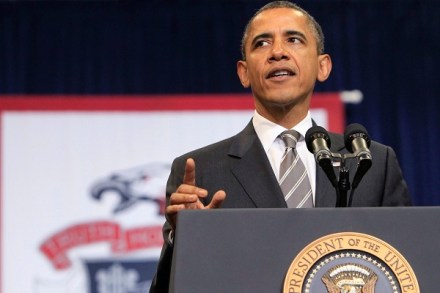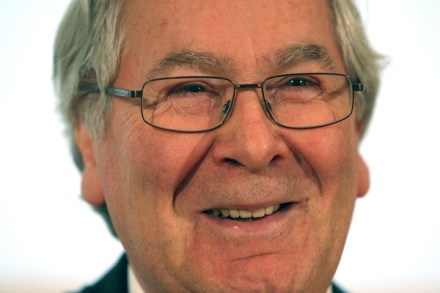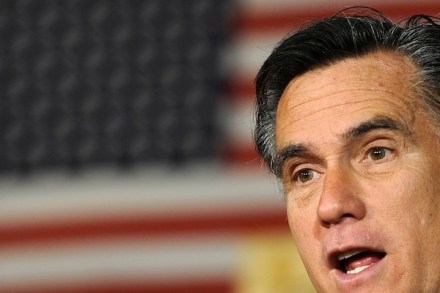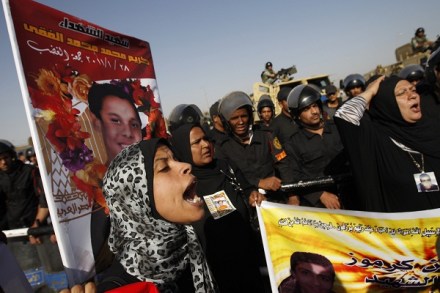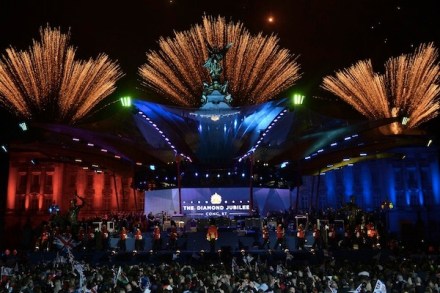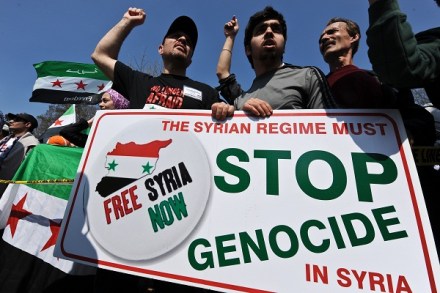At the BBC, the Arab Spring has only just ended
Have you seen much on the BBC news about the persecution and indeed murder of Syria’s Christian population by the liberal-minded and agreeable rebel forces who are not at all Islamist maniacs allied to al-Qa’eda? Nope, me neither. There was a short report in April about the Christians fearing that they might be ‘caught in the middle’ of the fighting — in much the same way, I suppose, that Bosnian Muslims were somehow ‘caught in the middle’ between the Serbs and, er, themselves. There was no suggestion that the rebels might, for some mysterious reason, have it in for the Christians: this wouldn’t fit the template for the BBC’s coverage.




